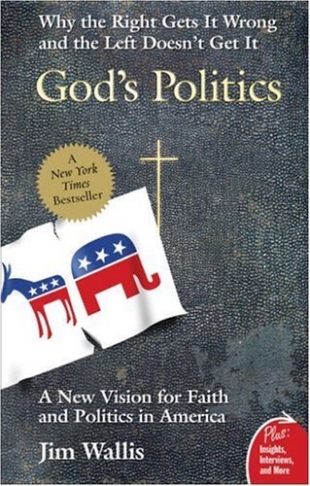"Prophetic faith does not see the primary battle as the struggle between belief and secularism. It understands that the real battle, the big struggle of our times, is the fundamental choice between cynicism and hope. The prophets always begin in judgment, in a social critique of the status quo, but they end in hope — that these realities can and will be changed. The choice between cynicism and hope is ultimately a spiritual choice, one that has enormous political consequences.
"First, let's be fair to the cynics. Cynicism is the place of retreat for the smart, critical, dissenting, and formerly idealistic people who are now trying to protect themselves. They are not naive. They tend to see things as they are. They know what is wrong, and they are generally opposed to what they see. These are not the people who view the world through rose-colored glasses, the ones who tend to trust authority or who decide to live in denial. They know what is going on, and at one point, they might even have tried for a time to change it. But they didn't succeed; things got worse, and they got weary. Their activism, and the commitments and hopes that implied, made them feel vulnerable. So they retreated to cynicism as the refuge from commitment.
"Cynicism does protect you in many ways. It protects you from seeming foolish to believe that things could and will change. It protects you from disappointment. It protects you from insecurity because now you are free to pursue your own security instead of sacrificing it for a social engagement that won't work anyway.
"Ultimately, cynicism protects you from commitment. If things are not really going to change, why try so hard to make a difference? Why become and stay so involved? Why take the risks, make the sacrifices, open yourself to the vulnerabilities? And if you have middle-class economic security (as many cynics do), things don't have to change for you to remain secure. That is not intended to sound harsh, just realistic. Cynics are finally free just to look after themselves.
"Perhaps the only people who view the world realistically are the cynics and the saints. Everybody else may be living in some kind of denial about what is really going on and how things really are. And the only difference between the cynics and the saints is the presence, power, and possibility of hope. And that, indeed, is a spiritual and religious issue. More that just a moral issue, hope is a spiritual and even religious choice. Hope is not a feeling; it is a decision. And the decision for hope is based on what you believe at the deepest levels — what your most basic convictions are about the world and what the future holds — all based on your faith. You choose hope, not as a naive wish, but as a choice, with your eyes wide open to the reality of the world — just like the cynics who have not made the decision for hope.”
